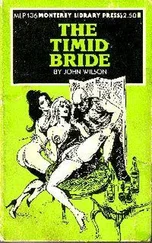When I again wrapped her warmly and began to feed her, giving suck was an entirely new experience. At my breast I no longer saw a pink leech but a rosy angel with a halo of pale hair and skin like doves’ down. Now that her limbs were free, she pushed one little hand against my breast and kneaded it gently, as if caressing and blessing me at the same time and under the power of this benison the milk that flowed from me seemed to contain my very heart and soul.
‘The king’s in the oubliette again,’ announced Jean-Michel one afternoon when we were alone together. The ‘oubliette’ was servants’ slang for the special apartment set aside to contain the monarch during his ‘absences’.
‘They carted him off there yesterday afternoon. Apparently he drew his dagger in the council and started slashing about with it wildly, so they had to disarm him and tie him up.’
‘God save us! Was anyone hurt?’ I asked with alarm.
‘Not this time.’
‘Have people been injured in the past then?’
‘Well, they try to hush it up but one or two chamberlains have mysteriously disappeared from circulation.’
‘You mean they have been killed?’ I squeaked, incredulous.
‘No one has ever admitted it, but …’ Jean-Michel spread his hands. ‘Mad or not, he is the king. Who is going to accuse him of murder?’
I shivered. The closer I got to it, the more I was bewildered by the power of monarchy. Since I had been at the palace I had never laid eyes on the king – at least not as far as I knew. It had been drummed into me by Madame la Bonne that if I should happen to encounter anyone of rank, unless they spoke to me directly, I must avert my eyes and remove myself from their presence as fast as possible. Servants were issued with drab clothing; in my case a mud-coloured kirtle and apron and a plain white linen coif, and like all other palace menials I had perfected the art of scuttling out of sight at the merest flash of sparkling gems and bright-coloured raiment. So, even if I had glimpsed the king I would have been obliged to ‘disappear’ before I could distinguish him from any other peacock-clad courtier. Of course everyone knew of his recurring malady. One day he would be quite normal, eating and talking and ruling his kingdom, and the next he was reduced to a quavering, raving, deluded wreck, a state which might persist for any length of time, from a week to several months.
‘What happens now?’ I enquired.
‘The queen will pack up and go to the Hôtel de St Antoine,’ Jean-Michel said with a sly grin. ‘When her husband is out of the way, she jumps into bed with her brother-in-law.’
‘The Duke of Orleans!’ I exclaimed. ‘No! She cannot. It is a sin.’
‘Listen to Madame Innocente!’ teased Jean-Michel. ‘It is treason too, as it happens, but no one says “cannot” to Queen Isabeau. Who is going to arrest her? When the king is ill, she becomes regent.’
Now I was even more shocked. Did God not punish adultery? Did not the fiery pit yawn for the wife who bedded her husband’s brother?
‘What about hellfire?’ I protested. ‘Surely even queens and dukes go in fear of that.’
Jean-Michel shrugged. ‘I thought you would have realised by now that royalty does not live by the same rules as the rest of us. They can buy a thousand pardons and get absolution for absolutely everything.’ His brown-velvet eyes suddenly acquired a familiar gleam. ‘You look outraged, my little nursemaid. I like it when you get hot and bothered.’ He reached over to pull off my coif for he loved it when my dark hair tumbled down my back and it usually led to other items of clothing becoming disarranged.
I pushed his hand away, softening the rejection with a rueful smile. ‘No, Jean-Michel. I must go. Catherine might be crying for me.’
‘Catherine, Catherine!’ he mimicked, frowning. ‘All I hear about is Catherine.’ His tone was indignant but a note of indulgence lurked beneath. To look at him you would not think there was anything soft about Jean-Michel but I think he understood that I had come to love my little nursling the way I would have loved our own baby.
I scrambled up, brushing stalks off my skirt. ‘I will come again tomorrow,’ I promised, giving him a genuinely regretful look, for he was not alone in wanting to linger in our hayloft hideaway.
‘One day you must tell Mademoiselle Catherine what sacrifices we made for her!’ he caroled after me down the ladder.
As he had predicted, the queen did indeed de-camp to the Duke of Orleans’ mansion and their Christmas celebrations set the city abuzz. Night after night bursts of minstrel music drifted up to the nursery windows from lantern-decked galleys ferrying fancy-dressed lords and ladies to a series of entertainments at the Hôtel de St Antoine. Craning our necks through the narrow casement, we could just see the crackle and flash of fireworks and hear the roar of exotic animals, brought from the king’s menagerie to thrill the assembled guests. Jean-Michel reported that the taverns were full of minstrels and jongleurs who had converged on Paris in droves, drawn by the promise of lavish purses for those who impressed the queen.
It was a mystery to me why she did not include her children in all this fun. She did not even send them presents. The joy of Christmas barely touched the royal nursery. On the feast-day itself, Madame la Bonne pulled their best clothes out of a locked chest and took the children to mass in the queen’s chapel and I was allowed to sit at the back with the donkeys. Otherwise we might not even have known it was Christmas.
Our dinner was even worse than usual, consisting of grease-laden slops and stale bread, which the children understandably refused to eat. Only the Christmas pies I fetched from my parents’ bake house gave the poor mites a taste of good cheer.
By Epiphany the palace had ground to a halt. Madame la Bonne had gone to a twelfth-night feast at the house of one of her noble relatives, leaving the ‘donkeys’ in charge, and they had taken advantage of her absence to make themselves scarce as well. ‘You’ll be all right on your own, won’t you, Guillaumette?’ they said airily. ‘Just ask the guards if you need anything.’
The next morning the varlets who brought our supplies of food and water failed to turn up. I was alone with four royal children, no food, no warmth and no one to turn to. I was terrified. Only the sentries remained at their posts, guarding the entrance to the nursery as usual.
‘Nobody has been paid,’ one of them revealed bluntly, when I plucked up courage to ask where everyone was. ‘The master of the household has gone with the queen and taken all the clerks and coffers with him.’
‘Then why are you still here?’ I enquired.
The soldier’s sly grin revealed a row of blackened stumps. ‘The royal guard is paid by the Constable of France, God be praised – and he is an honourable man.’
‘Unlike the royal governess,’ I muttered. ‘I have not been paid for weeks.’
‘Best leave then, my little bonbon, like the rest of them,’ he wheezed in a foul-smelling chuckle. ‘Fools earn no favour.’
But how could I leave? How could I abandon four friendless and motherless children? I persuaded the guard to fetch us some bread and milk for the children’s breakfast and after the donkeys finally returned looking smug and dishevelled, I fed Catherine and left her sleeping while I sped home to the bakery and begged a basketful of pies and pastries from my mother. I told her the king’s children were starving in their palace tower.
It was no real crisis because Madame la Bonne returned from her social engagement and the meal deliveries, mean though they were, began once more. But there was still no sign of any laundry and I was sent to the wash-house to investigate. Overwhelmed by the acrid stench of huge bleaching vats overflowing with urine and the smelly heaps of dirty linen turning blue with mildew, I filched an armful of linen napkins when I spotted them and ran. I could wash the napkins daily and keep her clean. Without a supply of clean swaddling, Madame la Bonne could no longer truss the baby up every morning, so Catherine’s limbs were allowed to kick free and strong. Meanwhile her blonde curls rioted under the little caps I sewed for her. Ironically, during those dreadful weeks of winter she grew as bonny and plump as a bear cub.
Читать дальше












